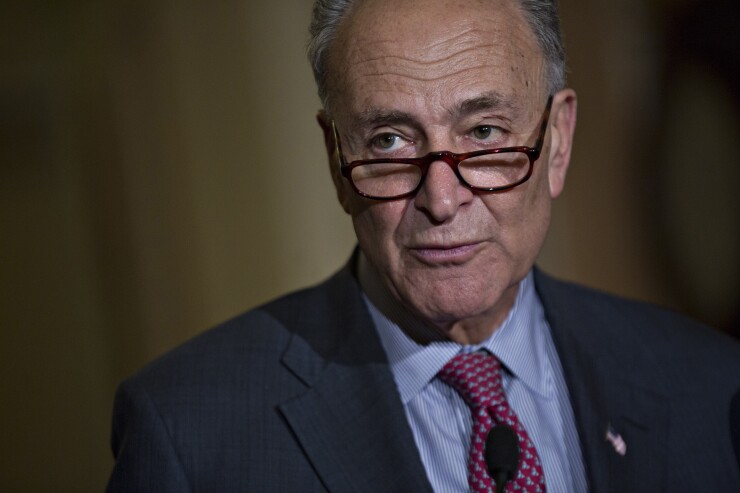
WASHINGTON — Senate Majority Leader Chuck Schumer, D-N.Y., wrote to Capital One Financial Corp. and Discover Financial Services, questioning the
Capital One's proposed $35 billion acquisition of Discover would create a credit card behemoth, and is likely to trigger careful
Schumer's interest in the deal is notable: He's a powerful lawmaker, and has the ability to put bills on the Senate floor that could, eventually, pass into law. Notably, he has the power to attach the Durbin-Marshall
His national profile also makes his bully pulpit powerful.
Schumer said that the competitive analysis that the two financial companies provided to regulators "asserts that the national market for credit-card issuance is fragmented without considering how competition operates in smaller markets."
"This is a significant factor in antitrust law because certain customer types may not view all competing products as substitutes, and some of your companies' products may be designed to appeal to or maintain specific demographics," Schumer said in the April 10 letter, which was sent to Capital One CEO Richard Fairbank and
Schumer asked the two executives whether either firm plans any employee layoffs, and for competitive analysis of various risk profile borrowers.
While the deal's proponents argue that it would allow the combined Capital One and Discover to better compete with Visa and Mastercard, Schumer said the potential anticompetitive effects might outweigh the benefit of a third major credit card competitor.
"Additional concentration — beyond acceptable levels — is a concern in spite of any alleged pro-competitive synergies," he said.






